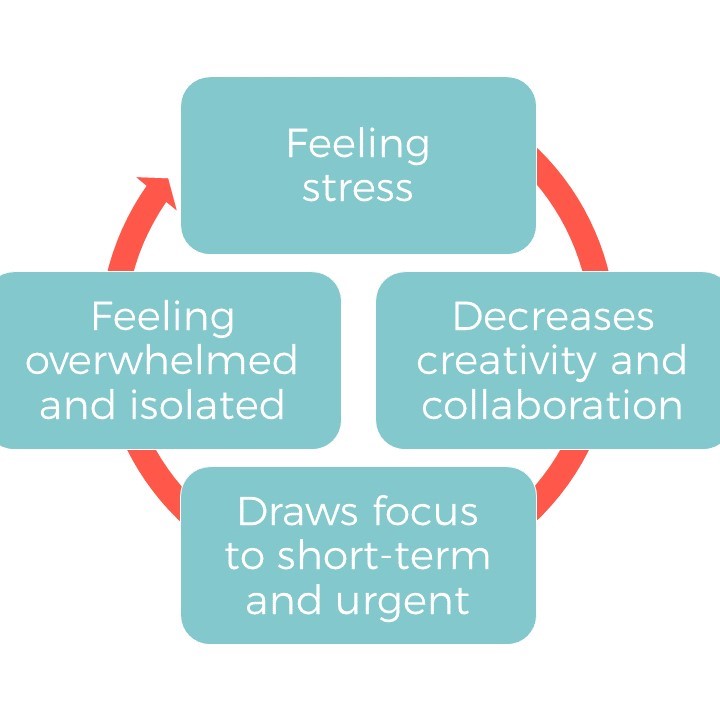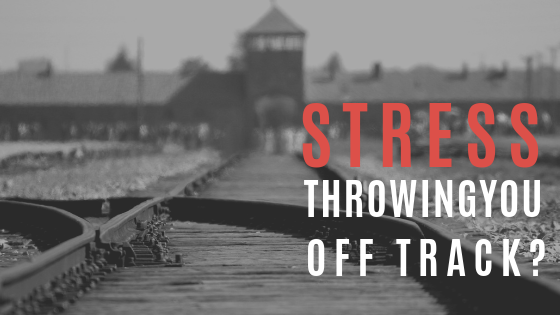I recently conducted a workshop for business leaders focused on stress and the impact it has on collaboration. As part of the workshop, everyone participated in a short simulation. It involved 15 people working together under extremely tight time constraints. When the simulation came to an end, and the team fell short of achieving their goal, the group unanimously explained, “We didn’t have enough time!”
Doesn’t that sound familiar? A day doesn’t go by where I don’t feel pressed for time. I end up packing in way more than I should, and I eventually feel overwhelmed, distracted, and stretched too thin.
SO WHAT IS THE IMPACT OF THIS PATTERN OF BEHAVIOR?
Josh Freedman has a lot to say about this in his article, Stress is Killing Me. Time for Emotional Intelligence? It becomes difficult to focus on a solution when we are pressed for time. The additional pressure ignites a myriad of thoughts and feelings.
Thoughts: I’m never going to solve this. There’s not enough time. Everyone is in my way. Get out of my way. I’m so sick of doing this.
Feelings: Frustrated. Annoyed. Perplexed. Anxious. Defeated. Overwhelmed.
While some stress can actually be helpful, stress becomes toxic when you enter into a stress cycle with no plan or awareness on how to get out.

The Stress Cycle
There are days when I can get completely caught up in this stress cycle. I find myself saying, “If I can just get through these next couple of days, I’ll have more time for….”
And then I sit in my urgent focused state, shutting out the world around me and feeling disconnected. I don’t think my reaction to stress is that uncommon. And this is the problem.
The more stress we experience, the more we detach from the people around us. The very people we need most in these stressful situations.
I love Psychologist Kelly McGonigal’s TED TALK on the topic. She recommends perceiving stress as positive and encourages reaching out to others as a mechanism for stress reduction.
Back to the Workshop
As we debriefed the workshop activity it became clear to everyone, the lack of time created a sense of stress. This stress resulted in:
- People jumping in to try to solve the problem
- Some worked in groups of two
- Others worked in groups of three
- Others on their own
- Some just checked out
- No one worked together as a team, leveraging each others’ strengths and sharing the burden of coming up with a solution
And as a result:
- Communication shut down
- Planning was non-existent
- And random solutions were being tossed out with no success
Collaboration requires you to slow down, seek multiple perspectives and ideas to determine the best possible solution.
WHAT DRIVES YOUR ACTIONS?
During the workshop, participants completed a Six Seconds Brain Brief Profile to increase their self-awareness. The profile helped them to understand:
- Where they prefer to focus (facts or feelings)
- How they appraise situations (assess risk or assess opportunity)
- How they get energy (pragmatic action or long-term possibilities)
Our simulation helped to point out that emotions drive people, and people drive performance. Here are just a few of the observed actions that resulted from different feelings

About Kelli Porcaro, PCC, EQAP, EQCC
Kelli brings 25+ years of Organizational Development experience to her work as a Consultant and Coach. She works in a wide range of industries unlocking infinite possibility with leadership development, instructional design, change management, and emotional intelligence.
Kelli also serves on Faculty at the Lake Forest Graduate School Management.

